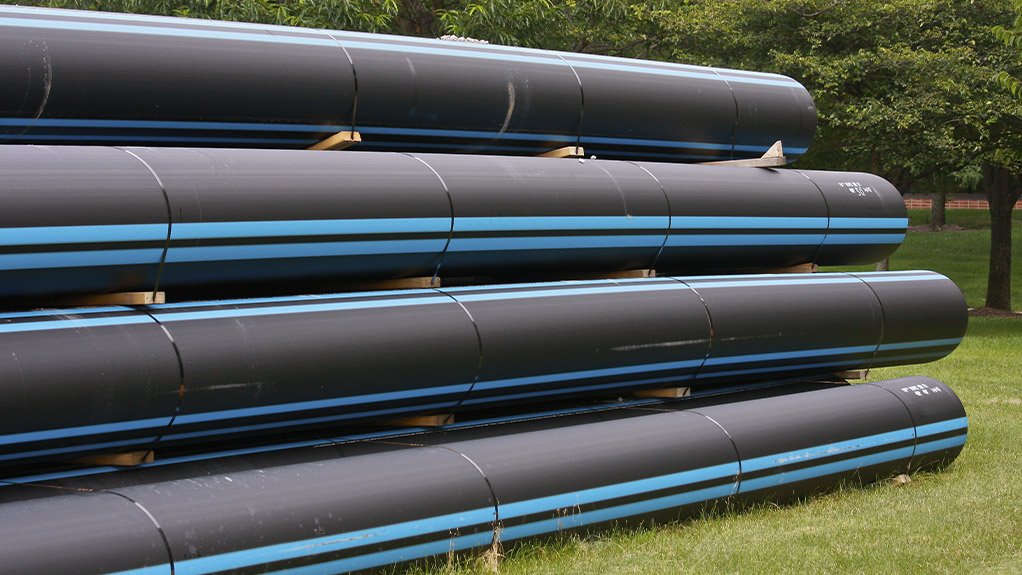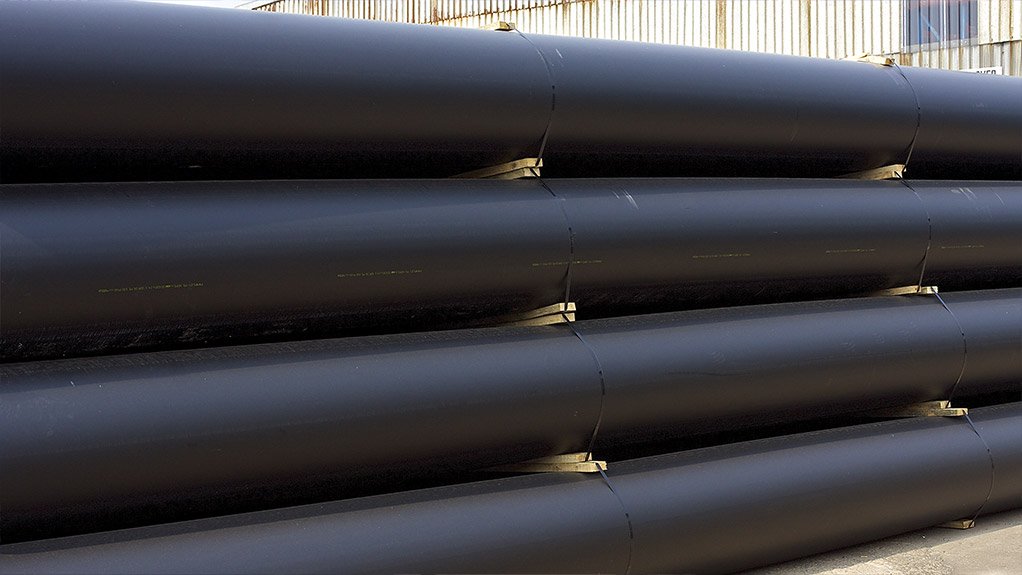When size matters: SAPPMA reports strong growth in large diameter plastic pipe market
This article has been supplied.
The Southern African Plastic Pipe Manufacturers Association (SAPPMA) has reported significant growth in the demand for large diameter plastic pipes, highlighting an industry-wide shift towards more efficient, durable, and sustainable piping solutions.
SAPPMA CEO, Jan Venter, reports that compared to previous years, the market has seen an increase in the volume of polymer being processed, leading to higher sales and increased production among SAPPMA members.
Large diameter plastic pipes are typically used for bulk water supply, stormwater drainage, sewer systems, and industrial applications. They are commonly installed in infrastructure projects, including municipal water and sanitation networks, irrigation systems, and mining operations.
“Plastic pipes are proving to be the preferred choice for various applications, thanks to their many advantages over traditional materials such as concrete and steel,” Venter says. “The industry has evolved significantly, with advancements in polymer technology and manufacturing processes enabling us to produce pipes that meet the highest standards of performance and durability.”
Why Plastic Pipes?
Plastic pipes made from High-Density Polyethylene (HDPE) and Polyvinyl Chloride (PVC), offer numerous benefits over alternative materials. They are lightweight yet strong, making transportation and installation significantly easier and more cost-effective. Unlike steel or concrete pipes, plastic pipes are corrosion-resistant, ensuring a longer lifespan with minimal maintenance requirements. Additionally, their flexibility makes them less susceptible to cracking under pressure or shifting soil conditions, reducing the risk of failure over time.
Types and Sizes of Large Diameter Plastic Pipes
The market offers a wide range of large diameter pipes, with pressure ratings and sizes varying according to specific project requirements. Internationally HDPE pipes are available in diameters up to 2 meters and in South Africa up to 1.2 meters, making them ideal for high-pressure applications such as water distribution and wastewater management. PVC pipes, known for their strength and chemical resistance (available in sizes up to 1.2 m overseas and 600 mm locally) and are often used in gravity-fed systems such as stormwater drainage and sewage networks.
Ensuring Quality and Industry Standards
SAPPMA has long been at the forefront of advocating for high-quality manufacturing practices in the plastic pipe industry. The association conducts regular, unannounced factory audits to ensure that its members adhere to stringent quality standards and follow its Code of Conduct These rigorous checks are vital in preventing sub-standard pipes from entering the market and ensuring that plastic pipelines do not fail due to poor manufacturing practices.
“It is crucial that engineers, municipalities, and procurement officers specify pipes bearing the SAPPMA mark in their tender documents,” emphasises Venter. “This ensures that only top-quality products, manufactured in line with internationally recognised standards, are used in critical infrastructure projects. All plastic pipes must be produced in a SAPPMA-approved factory or, alternatively, in a facility that meets ISO 9001 requirements as well as the relevant SABS or ISO product standards. The contractor must provide proof of compliance with these standards, failing which the pipes will be rejected."
With the continued growth in the large diameter plastic pipe market, SAPPMA remains committed to upholding industry standards, promoting innovation, and ensuring that the benefits of plastic piping solutions are maximised across South Africa’s infrastructure landscape.
Article Enquiry
Email Article
Save Article
Feedback
To advertise email advertising@creamermedia.co.za or click here
Press Office
Announcements
What's On
Subscribe to improve your user experience...
Option 1 (equivalent of R125 a month):
Receive a weekly copy of Creamer Media's Engineering News & Mining Weekly magazine
(print copy for those in South Africa and e-magazine for those outside of South Africa)
Receive daily email newsletters
Access to full search results
Access archive of magazine back copies
Access to Projects in Progress
Access to ONE Research Report of your choice in PDF format
Option 2 (equivalent of R375 a month):
All benefits from Option 1
PLUS
Access to Creamer Media's Research Channel Africa for ALL Research Reports, in PDF format, on various industrial and mining sectors
including Electricity; Water; Energy Transition; Hydrogen; Roads, Rail and Ports; Coal; Gold; Platinum; Battery Metals; etc.
Already a subscriber?
Forgotten your password?
Receive weekly copy of Creamer Media's Engineering News & Mining Weekly magazine (print copy for those in South Africa and e-magazine for those outside of South Africa)
➕
Recieve daily email newsletters
➕
Access to full search results
➕
Access archive of magazine back copies
➕
Access to Projects in Progress
➕
Access to ONE Research Report of your choice in PDF format
RESEARCH CHANNEL AFRICA
R4500 (equivalent of R375 a month)
SUBSCRIBEAll benefits from Option 1
➕
Access to Creamer Media's Research Channel Africa for ALL Research Reports on various industrial and mining sectors, in PDF format, including on:
Electricity
➕
Water
➕
Energy Transition
➕
Hydrogen
➕
Roads, Rail and Ports
➕
Coal
➕
Gold
➕
Platinum
➕
Battery Metals
➕
etc.
Receive all benefits from Option 1 or Option 2 delivered to numerous people at your company
➕
Multiple User names and Passwords for simultaneous log-ins
➕
Intranet integration access to all in your organisation























